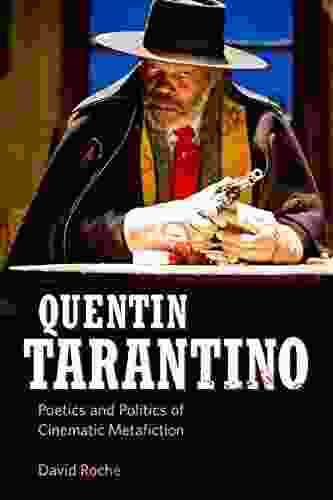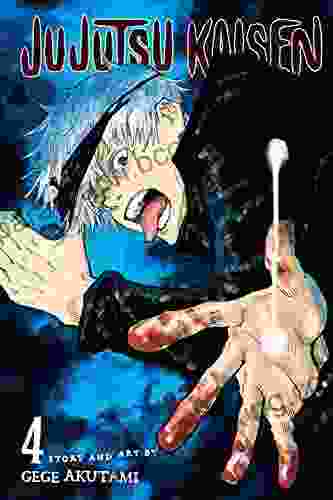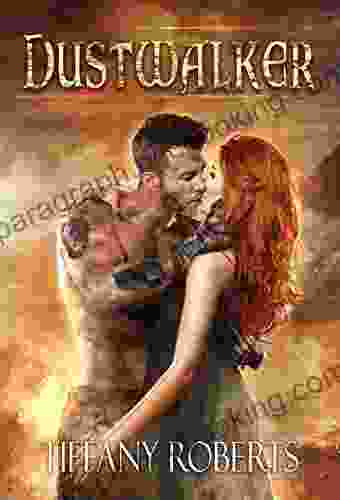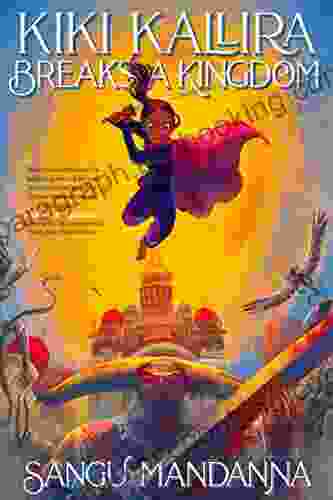Quentin Tarantino: Poetics and Politics of Cinematic Metafiction

Quentin Tarantino is one of the most iconic and influential filmmakers of our time. His work has been praised for its originality, violence, and humor. But beyond the surface, Tarantino's films are also deeply political and philosophical.
5 out of 5
| Language | : | English |
| File size | : | 11325 KB |
| Text-to-Speech | : | Enabled |
| Screen Reader | : | Supported |
| Enhanced typesetting | : | Enabled |
| Word Wise | : | Enabled |
| Print length | : | 348 pages |
In this essay, we will explore the poetics and politics of Tarantino's cinema, focusing on his use of metafiction. Metafiction is a literary or cinematic technique that refers to itself or to the conventions of storytelling. Tarantino's use of metafiction is often playful and self-reflexive, but it also serves a deeper purpose: to explore the nature of violence, representation, and power.
The Poetics of Metafiction
Tarantino's use of metafiction is evident in many of his films, but it is perhaps most pronounced in Pulp Fiction. The film is a complex and non-linear narrative that features a number of self-referential moments. For example, the character of Jules Winnfield (Samuel L. Jackson) frequently quotes from the Bible, even though he is a hitman. This self-referentiality draws attention to the fact that Pulp Fiction is a work of fiction, and it also raises questions about the nature of violence and representation.
Tarantino's use of metafiction is also evident in his use of violence. In his films, violence is often stylized and exaggerated, and it is often used to explore the themes of power and control. For example, in Reservoir Dogs, the violence is often used to show how power can corrupt and dehumanize people. In Django Unchained, the violence is used to explore the horrors of slavery and the legacy of racism in America.
The Politics of Metafiction
Tarantino's use of metafiction is not only a formal technique, but it also has a political dimension. By drawing attention to the fact that his films are works of fiction, Tarantino is able to challenge the idea that film is a neutral medium. He shows that film is always a product of its time and place, and that it can be used to express political and social messages.
For example, in Inglourious Basterds, Tarantino uses metafiction to explore the Holocaust. The film is set in Nazi-occupied France, and it follows a group of Jewish soldiers who are planning to assassinate Adolf Hitler. The film is full of violence and gore, but it also has a strong political message. Tarantino shows how the Holocaust was a horrific event, and he challenges the idea that it can be forgotten or forgiven.
Tarantino's use of metafiction is also evident in his films about race. In Django Unchained, he uses metafiction to explore the horrors of slavery. The film is set in the American South before the Civil War, and it follows a freed slave named Django (Jamie Foxx) who is trying to rescue his wife from a brutal slave owner. The film is full of violence and gore, but it also has a strong political message. Tarantino shows how slavery was a horrific institution, and he challenges the idea that it was a necessary evil.
Quentin Tarantino is one of the most important and influential filmmakers of our time. His work is both entertaining and thought-provoking, and it has a deep political and philosophical dimension. Tarantino's use of metafiction is a key part of his filmmaking style, and it allows him to explore the nature of violence, representation, and power. His films are a challenge to the status quo, and they force us to confront the dark side of human nature.
5 out of 5
| Language | : | English |
| File size | : | 11325 KB |
| Text-to-Speech | : | Enabled |
| Screen Reader | : | Supported |
| Enhanced typesetting | : | Enabled |
| Word Wise | : | Enabled |
| Print length | : | 348 pages |
Do you want to contribute by writing guest posts on this blog?
Please contact us and send us a resume of previous articles that you have written.
 Book
Book Novel
Novel Page
Page Chapter
Chapter Text
Text Story
Story Genre
Genre Reader
Reader Library
Library Paperback
Paperback E-book
E-book Magazine
Magazine Newspaper
Newspaper Paragraph
Paragraph Sentence
Sentence Bookmark
Bookmark Shelf
Shelf Glossary
Glossary Bibliography
Bibliography Foreword
Foreword Preface
Preface Synopsis
Synopsis Annotation
Annotation Footnote
Footnote Manuscript
Manuscript Scroll
Scroll Codex
Codex Tome
Tome Bestseller
Bestseller Classics
Classics Library card
Library card Narrative
Narrative Biography
Biography Autobiography
Autobiography Memoir
Memoir Reference
Reference Encyclopedia
Encyclopedia Joshua Piven
Joshua Piven Richard M Van Gaasbeek
Richard M Van Gaasbeek Jonathan Chapman
Jonathan Chapman Johnnie Gentle
Johnnie Gentle Jon Pessah
Jon Pessah Jon Gorey
Jon Gorey Quentin Russell
Quentin Russell John Wiley Spiers
John Wiley Spiers John Muir Laws
John Muir Laws Robert W Winters
Robert W Winters John Weisenberger
John Weisenberger John Warrillow
John Warrillow Melanie Weiss
Melanie Weiss Occupytheweb
Occupytheweb Jordan D Metzl
Jordan D Metzl Joy Vines
Joy Vines Stuart Young
Stuart Young John Wyndham
John Wyndham Johno Ellison
Johno Ellison Jorge Croda
Jorge Croda
Light bulbAdvertise smarter! Our strategic ad space ensures maximum exposure. Reserve your spot today!
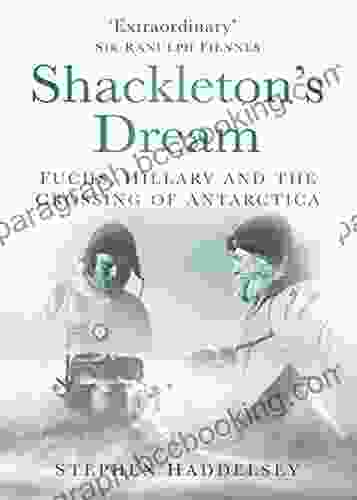
 Quentin PowellFuchs Hillary and the Crossing of Antarctica: An Epic Tale of Exploration,...
Quentin PowellFuchs Hillary and the Crossing of Antarctica: An Epic Tale of Exploration,... Percy Bysshe ShelleyFollow ·17.3k
Percy Bysshe ShelleyFollow ·17.3k Yasushi InoueFollow ·17.3k
Yasushi InoueFollow ·17.3k Ira CoxFollow ·2.4k
Ira CoxFollow ·2.4k Vic ParkerFollow ·2k
Vic ParkerFollow ·2k John KeatsFollow ·3.8k
John KeatsFollow ·3.8k Jaylen MitchellFollow ·15.5k
Jaylen MitchellFollow ·15.5k Bruce SnyderFollow ·6.5k
Bruce SnyderFollow ·6.5k Braeden HayesFollow ·12k
Braeden HayesFollow ·12k
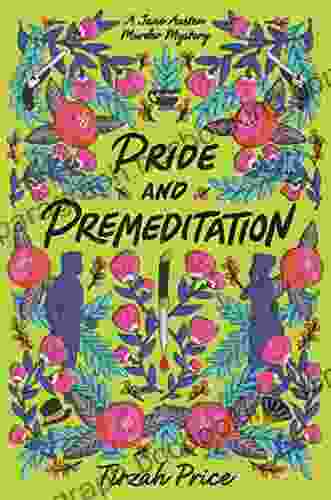
 Joseph Foster
Joseph FosterUnravel the Enigmatic Murders in "Pride and...
Dive into a World...

 Jeffery Bell
Jeffery BellTrauma-Focused CBT for Children and Adolescents: The...
Trauma is a...
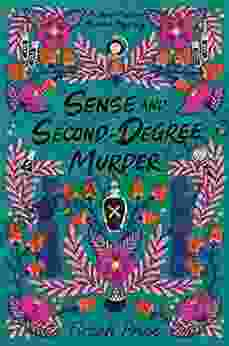
 Jorge Luis Borges
Jorge Luis BorgesSense and Second Degree Murder: A Jane Austen Murder...
Prepare yourself for a...

 Chase Simmons
Chase SimmonsUnleash the Vibrant World of Watercolor: An Enchanting...
In the world of art, watercolor painting...
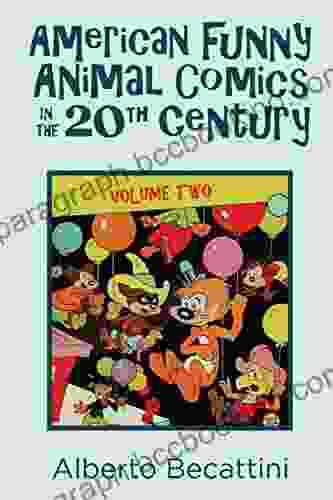
 Rubén Darío
Rubén DaríoAmerican Funny Animal Comics In The 20th Century: A...
Step into a bygone era of laughter and...
5 out of 5
| Language | : | English |
| File size | : | 11325 KB |
| Text-to-Speech | : | Enabled |
| Screen Reader | : | Supported |
| Enhanced typesetting | : | Enabled |
| Word Wise | : | Enabled |
| Print length | : | 348 pages |


